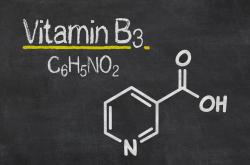The Role Of The Vitamin B Group In Maintaining Health And Energy
The vitamin B group is essential for everyone’s health but is particularly important if you are suffering from fatigue. What are the symptoms of vitamin B group deficiency and the best ways to gain enough of this vital nutrient?

What is the vitamin B group?
The vitamin B group, sometimes called vitamin B complex, contains crucial nutrients for overcoming tiredness. This group of vitamins also increases the uptake of some minerals, for example iron. Originally, they were all lumped together as vitamin B, but later on it was realized that there were many different forms of the vitamin, which is why there are different names and numbers for vitamin B. There are actually 8 vitamins in the group, but the most important ones in terms of tiredness and fatigue are:
Vitamin | Name | Deficiency causes |
B1 | Thiamine | Fatigue, memory loss, weakness, depression, cognitive disturbance, pain sensitivity, nervousness, constipation, shortness of breath, numbness, confusion |
B2 | Riboflavin | Lack of energy, cracked lips, inflamed mouth, watery eyes |
B3 | Niacin | Lack of energy, depression, scaly skin |
B5 | Pantothenic Acid | Lack of energy, adrenal burnout |
B6 | Pyridoxine | Fatigue, inadequate metabolism of all amino acids, particularly serotonin and dopamine. Reduction of REM sleep, mouth sores, anemia, decreased immune function |
B12 | Cobalamin | Fatigue, depression, psychosis, increased incidence of osteoporosis and stroke, increased blood clotting |
All the B group support the adrenal glands (please seeAdrenal glands and fatiguefor more information about this topic). Deficiency in any one of these vitamins causes fatigue and lack of energy. As they work in concert, it is important to make sure that you have an adequate amount of all of them. This is actually quite hard to do as levels of vitamin B group are actually falling in common foods.
People, who are suffering from CFIDS (chronic fatigue and immune dysfunction syndrome), seem to be particularly deficient in vitamin B12. It is thought that the vitamin may have difficulty crossing the blood/brain barrier or that the brain requires extra vitamin B12 to heal itself and thus deplete the stores.
Other groups of people who are at risk include people who are suffering from chemical sensitivity (whether or not they took supplements) and seniors (32% of them are deficient in vitamin B6 alone). Vegetarians, particularly those who are strict about their diet or who are on a macrobiotic diet, are also prone to vitamin B deficiency as are those whose absorption of nutrients is compromised in any way. This includes those with intestinal or colon illness, people with parasites and those with irritable bowel syndrome (please, seeDigestive health and fatiguefor more details. Pregnant women need to make sure that their levels of folic acid (vitamin B9) are high as well as the rest of the vitamin B group.
Does our food contain enough Vitamin B group?
It seems that levels of vitamin B are falling in the general food supply. Vitamin B12 in particular is marked less in liver than in the 1960’s. It contained 112 milligrams per 100 grams then, but it appeared to contain almost zero by the 1990’s. Beef heart likewise has fallen from 14 milligrams per gram in 1960’s to around 2 milligrams per gram thirty years later. The vitamin B12 which was in eggs and Swiss cheese back then seems to have all but disappeared by now.
The reason for this decline appears to be two-fold:
- Farming methods have changed, and far more chemicals are used agriculturally, particularly pesticides and fertilizers
- Antibiotics are overused and misused in animal husbandry.
As the B group is a product of bacterial fermentation, antibiotics alter the metabolism of it and destroy its potency. Bearing in mind both the above, it could be wise to look for organically grown food as far as possible.
How should you supplement, or eat wisely to gain enough of this vital nutrient?
As levels of vitamin B group in food are falling, it does seem wise to both eat healthy and to consider supplementing. In order to circumvent the antibiotic issues with commercially produced meat, it may be sensible to consider purchasing organically produced meat as much as possible. Likewise, it is worth searching out forms of whole grains and vegetables which have been produced without agricultural chemicals (organic).
The natural forms of vitamin B complex include:
- Whole grains
- Brewer’s yeast
- Miso
- Marmite
- Liver
- Rice bran syrup
- Meat
- Poultry
- Peanuts
- Bananas
- Potatoes
- Cabbage
- Cauliflower
- Avocado
(For advice about how to eat to maximize nutrient, please seeFood, nutrients, and tirednessfor more details).
Various supplements are available, either individually as specific vitamin B or as a blend of all or some of them. In fact, as all the B group work in harmony, it is wise to make sure that you have sufficient of all of them to make sure that any of them will work. Vitamin B group is available as a synthetic or a natural supplement. Naturally derived is probably preferable, as smaller amounts of it are needed. The key to choosing a good supplement is to obtain one which has the best balance of ingredients in the form that the body can absorb. For example 50-100 (mg) milligrams of Vitamin B6 should be balanced by 75-125 mg of Vitamin B3 and 200 - 400 mg of B12. Some people who are suffering from CFIDS benefit from injections of B12 but of course, this should only be carried out under medical supervision.


















Leave a comment